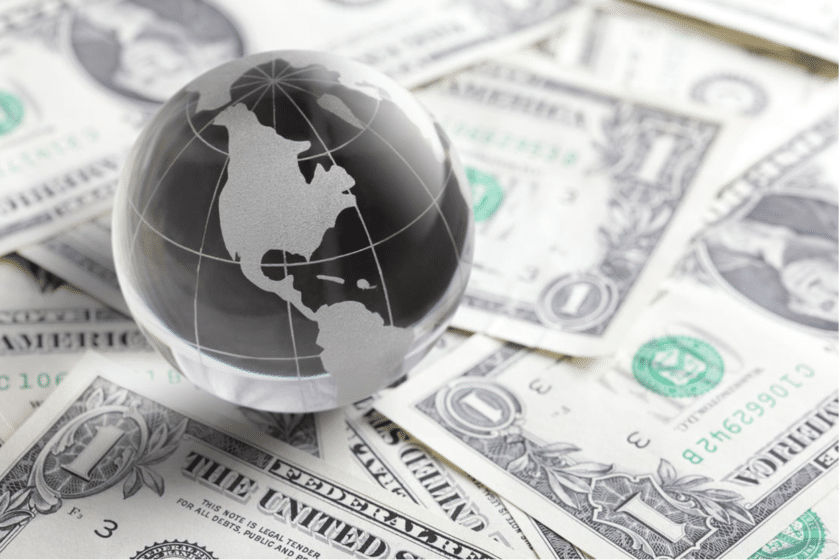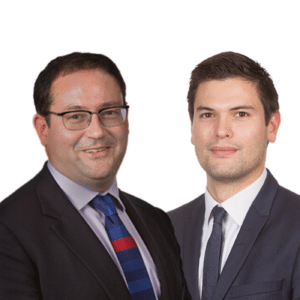This week’s Investment Q&A is with Elite Rated manager Dave Dudding, and newly-appointed co-manager Alex Lee, of the CT Global Focus fund. They tell us about the fund’s investment philosophy of focusing on company-specific factors, competitive advantages, and long-term growth potential, and also take a look at global economic trends and thematic investment opportunities such as decarbonisation and energy efficiency.
(Recorded 12 September 2023)
[00:30] Starting with the bigger picture, is there a growing optimism in the global economy?
[00:44] David Dudding I think it really varies region by region. We’ve all been surprised a little by how strong the US economy has been in the face of some very significant interest rate increases over the past year to 18 months. The US economy’s been going absolutely gangbusters, so I don’t think the economy there is probably improving, it has to start slowing down at some point. But I think at least people are optimistic that there’s not going to be a recession. And that the hopefully-not-mythical soft landing is going to be reached. That’s a fantastic scenario, but I wouldn’t say it necessarily means that things are improving. It means that they are likely to not be as bad as once been feared.
If we turn to other parts of the world – China – obviously economic growth has been slowing fairly quickly. And I think there are more concerns there about what the economy’s doing and whether the government is going to stimulate or stimulate enough, and indeed what it can do.
And similarly, Europe [is] pretty lacklustre, I think. Some economies are probably in recession right now. So, yes, it may get a little bit better, but again, a lot depends on oil and gas prices. It looks like we’re heading into another winter of war in the Ukraine. And so, I’d say the outlook has quite possibly bottomed, but it’s fairly muted nonetheless.
[02:59] Alex Lee As you mentioned, trends are different region by region. And then if we’re speaking to companies as well, trends are different, sector by sector. And even within sectors, trends are different.
Take industrials, for example. If we look at areas like construction machinery, the environment’s been very strong, maybe stronger than many people had expected for longer. And earnings of these companies continue to be pretty good. And we’ve spoken to some companies recently and they remain optimistic on the outlook. But if we speak to factory automation companies within the industrial sector, there are definitely clear signs that the environment has been slowing; I guess again, related to China, the Chinese economy has been quite weak. But there was a huge amount of investment in EVs, for example, in China over the last couple of years, and suddenly investment there has definitely taken a tumble and that’s hurt some of the automation companies.
So, it’s really important to look at the world, not just from a top-down view, but really understand what’s going on from a kind of a sub-sector level and a company-specific level.
[04:40] Is that how you approach this fund then, more on a sector / sub-sector level than perhaps a regional outlook?
[04:49] David Dudding I’d say we’re very bottom up. And there are a couple of things worth highlighting around that.
We obviously pay a little bit of attention to the macro, particularly if you’re investing in something like a bank, then that is obviously very tied up with a local economy. It’s false to say that we don’t spend any time looking at the macro, but basically we try and spend as little time as possible. And that may sound a bit flippant, but basically, we’d rather be owning companies that, if not in control of their own destinies, at least are beneficiaries of long-term trends. And as long as the long-term trends are okay, then we’re prepared to weather some short-term turbulence if economies slow, etc.
So, we’re not constantly changing ideas, depending on our view of local or regional economies, because our information is no better than anyone else’s when it comes to predicting what’s going to happen in economies. And even if we did know, quite often we get the results of those predictions wrong. So, the best example of that came in 2016 where we didn’t think Brexit would happen. The fund owned quite a few UK stocks and they all went up after Brexit. So, we did well out of Brexit despite not thinking it was going to happen.
[06:47] And then, in Q4 of 2016, we didn’t know who was going to win the [US} election. We got that wrong, and then we got the impact wrong as well, and so that basically proved to us that there’s not much point us doing that sort of thing. And, actually, we’re much better off trying to focus on long-term fundamentals of the businesses that we’re investing in.
[08:15] You have taken some new positions recently in the fund; what is it about Apple Inc., PepsiCo Inc. and CRH plc that you like?
[08:35] David Dudding Basically what we like about Apple is it’s probably the world’s greatest brand at the moment. And, you know, brand strength is one of the key things that we look for. We try and look at everything through a lens of competitive advantage. And we think that there are five sources of sustainable competitive advantage. One would be intangible assets, which includes brands, patents, that sort of thing. And then you’ve got cost, scale, switching costs, and the network effect. And Apple certainly it has an incredibly strong brand, but surprisingly, Apple is not the biggest handset company in the world in terms of volumes. We think it’s about to become the number one [by volume] but it is [number one] by value, because their phones sell at a massive premium compared to everyone else’s. But what Apple’s been incredibly successful at is really developing a whole ecosystem around phones, effectively. So, as most people who have an Apple phone realise, it’s quite hard to leave once you’re tied in. And there’s still room for them to grow in markets like India, but increasingly new products as well. But a lot of the growth now is being driven by services, so consumption of products based around the handset or the wearable or whatever device it is. And that is a very sticky revenue stream where the company has a lot of pricing power and people tend not to switch out of the Apple ecosystem into that of someone else. And that means that it’s relatively quite a slow-growing company, but it’s very visible and very sustainable growth.
Also, this is a company that doesn’t make too many acquisitions, certainly not very, very big ones, and so they basically return a lot of the profits back to shareholders in the form of buybacks in particular. So, what we call the capital allocation, what they do with all the profitability, is very much in investors’ favour.
[11:58] Alex Lee As Dave mentioned, we look for companies with competitive advantage. We’re known for being a quality fund, and often quality funds will look for simply companies with very high sustainable returns. But we look at quality more through a lens of competitive advantage. And we’re happy to buy companies with maybe lower, but rising returns on capital. And CRH ticks this box. CRH has got very high barriers to entry in its industry. It’s very difficult – or it’s going to be very difficult – to build out a new supply for cement going forward. And so CRH operates in an oligopoly. And so, we think that the sustainability of its returns are very visible going forward. The demand environment is being helped, especially in the US, by localisation of supply chains. And again, we think that the demand growth could accelerate or could be stronger over the next decade than it has been over the last decade.
Another area where CRH has got an advantage is in its ability or its technology around recycling. So, increasingly there are mandates for construction to be completed using recycled materials. And CRH is ahead of the game here, so I think that helps to set it apart from perhaps some of the smaller players that can’t afford to invest in these areas. So, all in all, we do see CRH as a company where the returns can rise over time. These returns can be very stable and sustainable. And we’re also very focused on valuations. So, we saw a lot of upside in the company when we started that position. And it’s done quite well so far, but we still expect upside from here.
Listen to the rest of Episode 278 of the ‘Investing on the go’ podcast series, including David and Alex discussing the following:
- [14:10] PepsiCo: pricing power and its snacks business
- [15:52] Why Japanese companies are looking more attractive
- [18:44] Opportunities in emerging markets, highlighting Indian and Indonesian banks
- [20:48] Climate change as a theme incl. decarbonisation
- [21:41] Energy efficiency – Schneider and Linde































